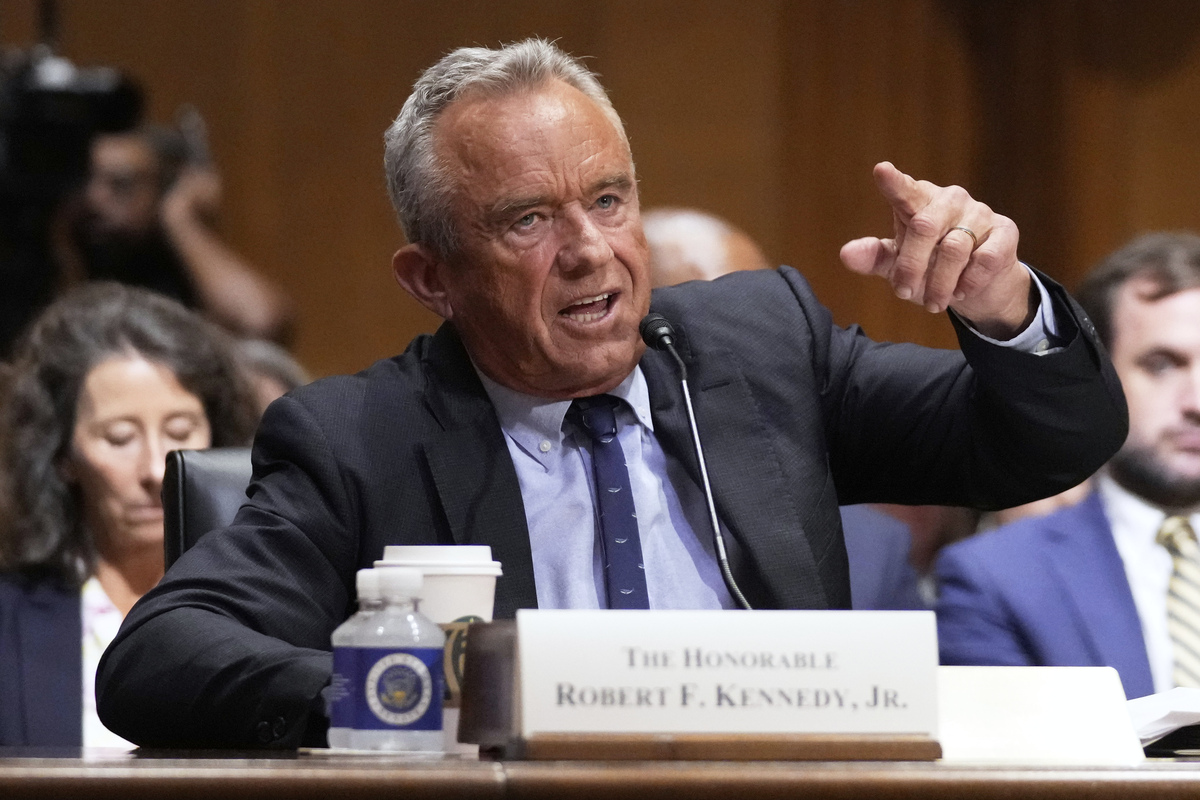During a contentious three-hour Senate committee hearing on March 14, 2024, U.S. Health Secretary Robert F. Kennedy Jr. faced intense bipartisan questioning regarding his approach to COVID-19 vaccination policies and the recent turmoil within federal health agencies. The session grew heated as Democratic senators challenged Kennedy’s decisions, particularly his efforts to revise vaccination recommendations.
The hearing, convened by the Senate Finance Committee, was intended to discuss Kennedy’s initiative to “Make America Healthy Again.” Instead, it transformed into a battleground, with both Democratic and some Republican senators expressing concerns over his management of the COVID-19 vaccination strategy. Senator Thom Tillis from North Carolina encapsulated the confusion surrounding Kennedy’s stance, asking, “I can’t tell where you are on Operation Warp Speed,” referring to the initiative credited for the expedited development of mRNA vaccines.
Contentious Exchanges and CDC Leadership Changes
The atmosphere became particularly charged after Kennedy criticized the recent firing of Susan Monarez, the director of the Centers for Disease Control and Prevention (CDC), who was ousted less than a month into her tenure. Kennedy claimed Monarez was dishonest and stated that CDC leaders who resigned in protest were deserving of termination. His comments on the CDC’s handling of the pandemic drew sharp rebukes from various senators, including Sen. Ron Wyden of Oregon, who accused Kennedy of compromising the integrity of the vaccine advisory panel by replacing established scientists with skeptics.
“It is imperative that the panel’s recommendations aren’t rubber-stamped but instead are rigorously and scientifically reviewed,” Monarez wrote in a recent op-ed.
Despite the criticism, Kennedy defended his actions, asserting he did not enforce any ultimatums regarding the vaccine advisory committee, although he acknowledged instructing Monarez to dismiss certain seasoned CDC officials. Tensions escalated further when Kennedy engaged in heated exchanges with senators, including Sen. Bernie Sanders and Sen. Elizabeth Warren, often resorting to dismissive remarks about their questions.
Medical Community’s Response
Kennedy’s recent decision to halt COVID-19 vaccine recommendations for healthy children and pregnant women has alarmed numerous health organizations. In June, he replaced a panel of expert advisors with individuals known for their skepticism towards vaccines, which has drawn widespread condemnation. A coalition of 21 medical and public health organizations, including the Infectious Diseases Society of America and the American Medical Association, released a statement urging Kennedy to resign, emphasizing the need for leadership that respects scientific evidence.
“Our country needs leadership that will promote open, honest dialogue, not disregard decades of lifesaving science,” the statement asserted. Many experts warn that Kennedy’s policies could lead to a rise in vaccine-preventable diseases, undermining public health efforts.
The hearing exemplified the growing divide over public health strategies in the United States, with Kennedy’s controversial policies at the forefront of a national debate on vaccine safety and effectiveness. As the session concluded, the implications of Kennedy’s leadership on health policy and public trust remain critical points of concern for lawmakers and health advocates alike.
